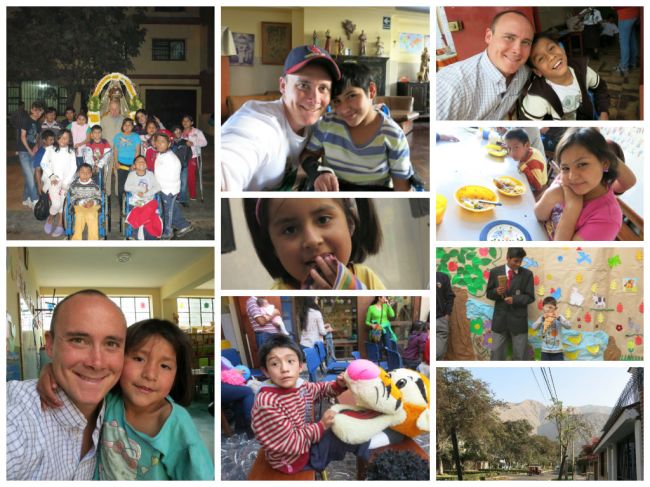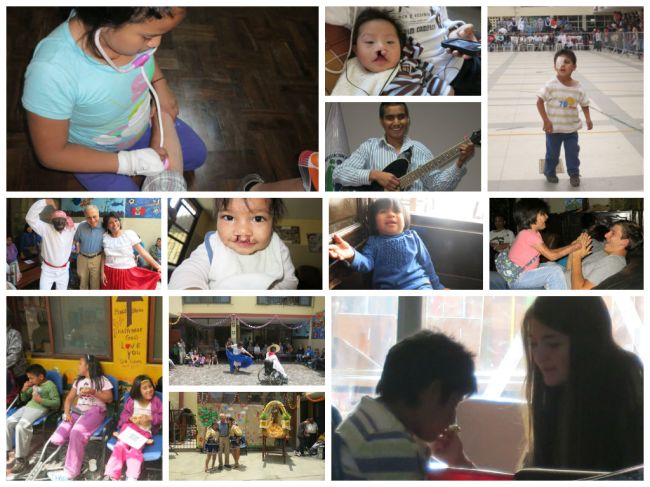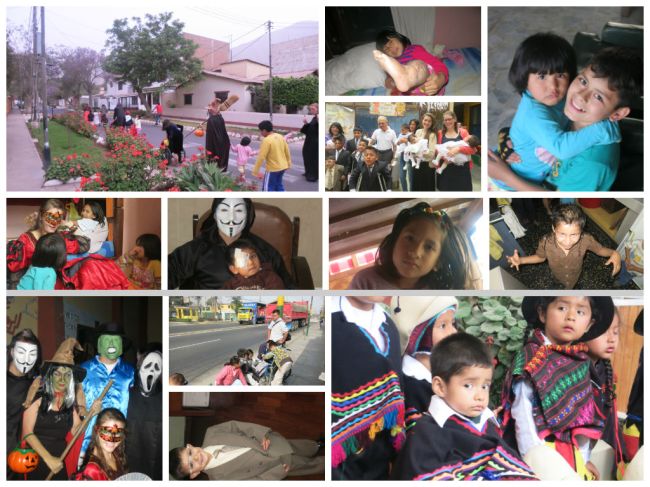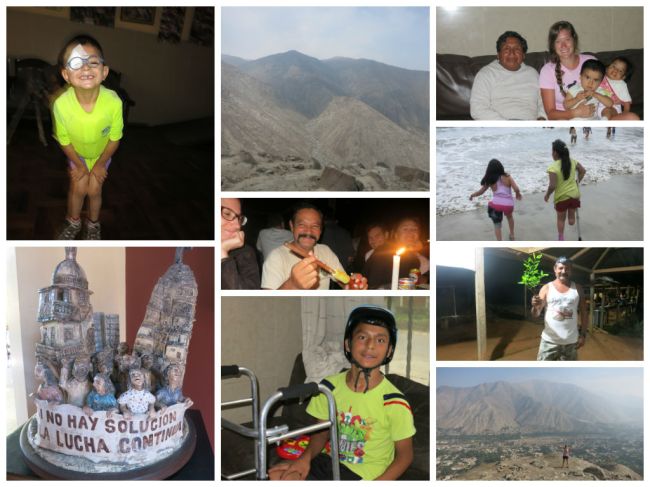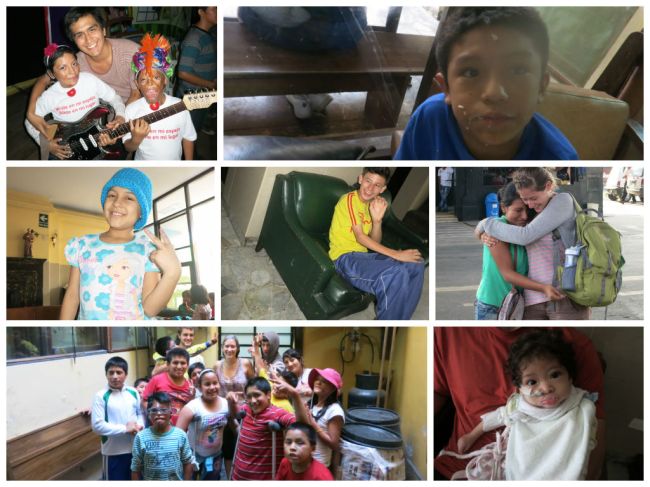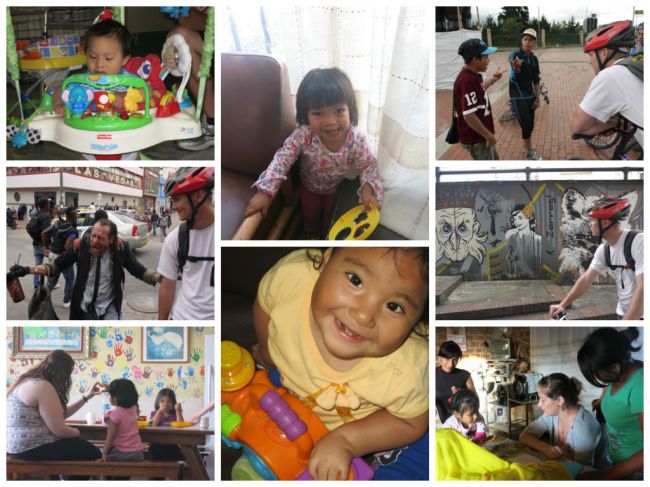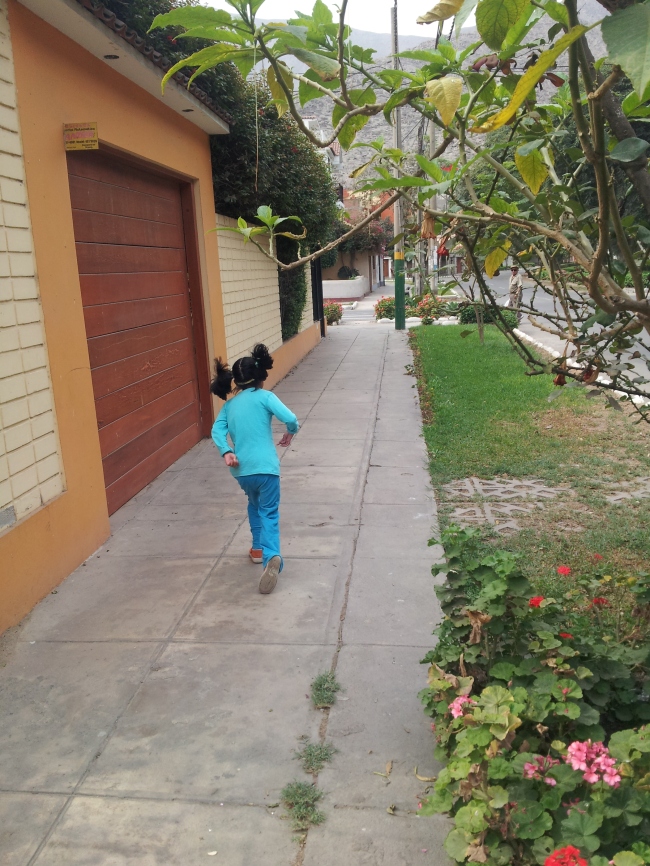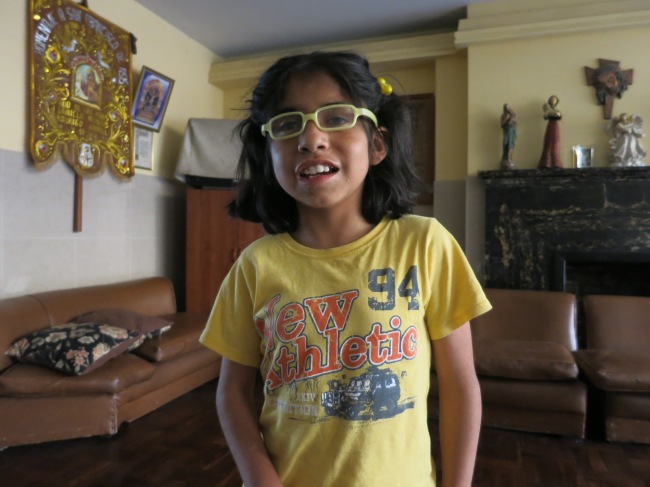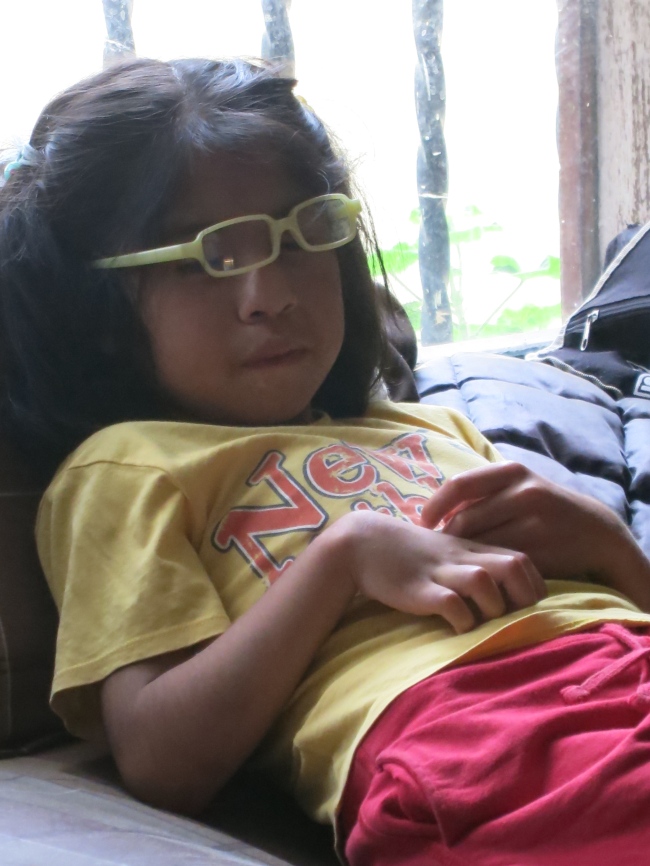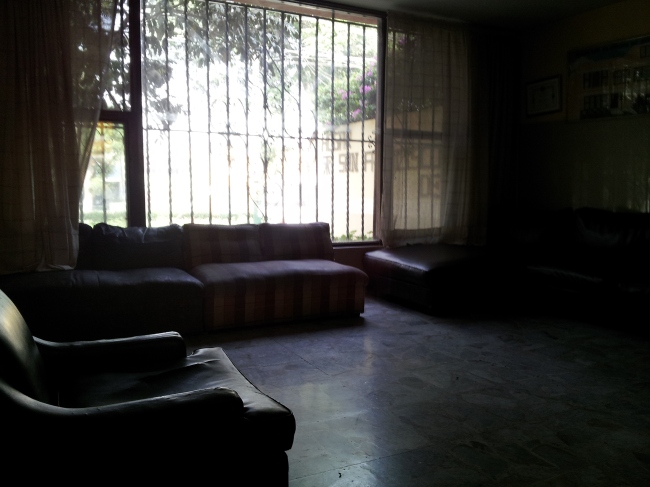They crossed midfield in the boat. The goal posts rose out of the water on either end. They moved from the soccer court down the flooded boulevard with smoke sputtering from the engine attached to the back of the dug out boat. The propellor blade cutting the water at the end of a long pole would have led the gaze up to the brightly colored steps behind that the most recent mayor had built as the entrance to the city– had they been looking that direction. But they were not. They were looking forward, uncertain what to expect. The shifting in the boat suggested more than physical uncomfortableness even though this would not be the first time they had seen images like this. It would, however, be the first time they had experienced it together.

It was a city they were entering. Truly. The main thorough-fare was wide with smaller pathways branching off, some culminating in dead ends while others led back and back further than was imaginable. Concrete telephone poles reached solitarily skyward, fettered by electrical lines and metal wires that drooped and sagged in apparent weariness. There was a bar. Boats collected out front crowded with noise, metal fencing marking where fun should start and stop. The noise makers did not heed it. The entrance ramp to the lumber yard rose out of the water to reveal quiet piles of giant tree trunks stacked in long pyramids, the cemetary of the jungle, almost accusatory in its silence on Saturday afternoon. It was a city, only flooded with water.

The houses were all wood. The few with paint remaining were flaked and faded, departed from a former brillance. Most rested on rafts. Thick trunks would form a perimeter with planks between to secure the rocking foundation. The homes were anchored in place with lines tethered to poles. A handful could be seen rising above the others as they were propped up on stilts. Out front were the latrines: free standing boxes with cracks in the walls and the hole in the bottom opening directly in to the water. Faces peered over the window frames, lounged in doorways, looked up from their boats. None were terribly interested. They were either busy transporting fruit or pigs or the new sheets of tin that the mayor was handing out to buy votes for the upcoming election. Or they were simply catching up on gossip for the week and relaxing.
The boat chugged past all this. A teenage girl was seated at the bow in a neon yellow sleeveless shirt revealing arms not strangers to work, her hair gathered on top of her head. Another teenager, this one a boy, sat at the stern, swinging the long-oared propellor with a non-chalance born from familiarity. This was their home and they were escorting the four visitors, three armed with cameras, two with wide brimmed hats, all with well-made shirts whose buttons and vents were designed to keep cool. One of the visitors was the official tour guide: a man born in the jungle who moved to this city when he was twelve, put himself through school, learned English, and now takes tourists to experience that which part of him wishes he had never left. His shirt and hat exhibited the professional logo that sets him apart even in this barrio where he spent his first five years of city life surviving. The other three passengers consisted of two parents and their son.

The young man shared a seat with his mom. He kept half-raising his camera then letting it fall again. The lens would retract in sleep mode as he struggled with which pictures he wanted to take. It was like he was stealing. He raised the camera quickly, took the picutre, and dropped it again below the level of the boat. Sometimes he would not even look at his target thinking naively that maybe they would not know he was singling them out, that he was saying “You are the spectacle. You are the other that is so different I have to go on a boat ride to see you in your natural habitat.” The camera is like pointing an accusatory finger. It is a writhing snake that the man is unsure whether he should grip harder and not let go or throw as far away as possible. He wanted to be here. He liked being here, seeing life so different from his own. It was the camera that made him uneasy, that corrupted the experience from one of sharing to something else. But he wanted to remember. He wanted to revisit this place again, to know life different than his, to see pain, to see joy, to see stories etched in the faces of the old or told in the laughs of the young.
“Fuck it. I am a tourist. Losing the camera is not going to make me fit in. No matter what I do I am going to be looked at. I am just as much a spectacle. Whatever.” With that thought he started raising the camera more. He was bolder, being diliberate about pointing it at people rather than empty buildings or landscapes. He was almost defiant. It was not the camera that made him different. Its presence or absence would not really change what people thought of him. He was tall. He was white. He was well dressed. He was well nourished. He was clean. No, the problem was not the camera. He accepted it and stole the memories and images that would hopefully leave him changed.
A house collapsed in the water under an unknown weight. Kids laughed and showed off with back flips in chest high water. A solitary child on a raft was going somewhere. Neighbors talked on their floating front proch. A flooded cesspool of a city. Hard eyes– only eyes– stared from the shadows.


They docked and tip-toed across the tresses of drift wood, avoiding the nails and false steps, until they made it back to the painted mayor’s steps. The fee was paid in cash furtively. How does one decide a price for such a trip? What is being valued? But the price was agreed on beforehand and settled accordingly. The cameras were put out of sight and the three said good-bye to the guide and ventured out to walk home.
It was supposed to be an opportunity to see the city: walk the streets and get a feel for the people, the culture, the way of life. They went in search of parks, landmarks, markets, crafts, or whatever else they could find. What they found, though, was not what they were looking for. The park at the shoreline was full of graffiti, empty fountains, and chipped paint. A stretch near restaurants and shops was well kept but was quickly passed. The river was choked with old buckets, plastic bags, glass bottles, driftwood, and river weeds native to the area. The Plaza de Armas, the large central square at the heart of every Latin American city, was surrounded by circling rickshaws who filled the air with a deafening buzz that superceded conversation and dotted the sky with puffs of exhaust, leaving one’s nose full of visible soot and dust at the end of the day. The market they stumbled across was not the central market full of exotic colors, tastes, and smells. It was the wholesale market with mountains of yuca root, plantains, papaya, soft drinks, and palm heart. Large delivery trucks kept interrupting the path and they had to jump into traffic and then bck on the side walk, unable to peruse leisurely, worried about the motorcycles. The rickshaws were still passing and they had to shout to be heard. There were always rickshaws. Everywhere. Swarming the streets sometimes eight deep across the four lanes of traffic, crisscrossing back and forth. There was no escape from their sight, their sound, their smoke. The buildings they passed were empty storefronts or harsh brick that testified to the bust after the boom of oil in the 1980s. Even though the sun was going down the city was still hot and muggy, threatening rain as was typical for the season. The three had been walking for nearly 45 minutes, their shirts stuck to their skin, their feet dirty and dusty, their ears sick of the relentless noise. The son, at least, wanted to be back at the hotel already. It was not the walk he had envisioned.
At last they made it back. The young man collapsed on the bed in his private room and turned on the air conditioning. He took off his shoes and shirt and let the cool air wash over him. He thought about enjoying a pisco sour in the restaurant next door. He could escape to the back where he would be insulated from the noise. The elevated lookout enclosed in glass walls would enable him to skip the trash near the shore and take in a view of the river unsoiled. It also had air conditioning.
Ultimately that dream was not pursued. An early night was preferred after the long day. The young man was surprised at how much he needed this retreat space. The quiet room. Cool. All to himself. Normally poverty did not bother him. He reveled in the markets, the diverse expressions of life, even the dust and dirt and broken houses. But there was something here that he needed to get away from. He was not sure from what, or why. He just knew he was glad that he was in here and not out there. The thought made him uncomfortable and sad because it was true.















